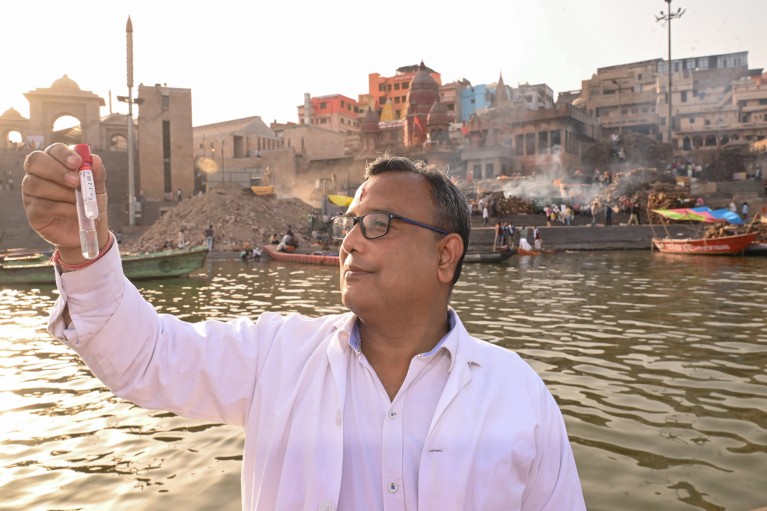
In Varanasi, India, biotechnologist Anurag Chaurasia collects water samples from the River Ganges, which is sacred to Hindus.Credit: Shri Kashi Vishwanath Baba
For the past 20 years, Elaine Howard Ecklund has studied scientists’ attitudes towards religion. What she’s found, through more than 40,000 surveys and nearly 2,500 confidential interviews, is that there are more religious scientists than many people would expect. In one study, at least 30% of respondents declared a religious affiliation (E. H. Ecklund et al. Socius https://doi.org/mvrv; 2016).This study surveyed scientists from eight countries and regions, including the United Kingdom, India, Hong Kong, Turkey and the United States. Globally, around 85% of the population identifies as religious (see go.nature.com/3yatbk5). Ecklund’s research has also found that scientists are not always open about their faith at work or in education settings. “I think there is the perception sometimes that other scientists won’t take you seriously if you talk about your faith,” says Ecklund, a sociologist based at Rice University in Houston, Texas.
Confidentiality, says Ecklund, allowed the scientists she surveyed to be more open about their faith than they might otherwise have been. “They were almost waiting to talk about it,” she says. “They feel like there’s so much silence within the scientific community about religion — it felt somewhat of a relief to talk about their own approach to religion in a safe environment.”
Ecklund has also found that many scientists are quite open to their colleagues’ beliefs. “Atheist scientists are much less negative about religion than we might be led to believe by the loudest voices, which we often think are the most numerous ones. And that’s often not the case,” she says. For example, her 2016 study found that in the United States, two-thirds of scientists do not view the science–religion relationship as one of conflict.
Serving science and the Church as the Pope’s astronomer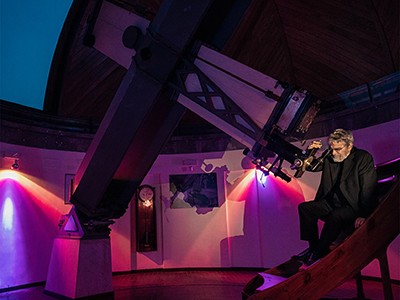
Ecklund has found that attitudes to faith in the workplace vary by country. For example, she says, “Indian scientists assume that there’ll be more discussion of religion within scientific contexts. So, there’s sometimes blessings over experiments. There is an assumption that staff in a lab will want to have time off for spiritual and religious holidays.”
Nature spoke to five religious scientists about how they navigate faith at work. Their experiences differ, but none felt a conflict between their beliefs and their science. Although none had experienced any direct discrimination on the basis of their religion, some did admit to being less open about their faith in particular professional contexts.
Many say that science and religion work in harmony as ways of understanding the world. Anurag Chaurasia, a biotechnologist with the Indian Council of Agricultural Research in Varanasi, recalls how, as a graduate student, he and his classmates would follow the guiding principles of the Hindu text the Bhagavad Gita to help them find direction. When experiments went awry, for example, their professor would instruct them: “Read the first message of this book, ‘Do your duty without being attached to the fruits of your action; do your duty selflessly.’” This guidance, says Chaurasia, taught him and his colleagues perseverance and how to handle failure. Bhagavad Gita principles also shaped group yoga sessions to aid relaxation and support good mental health, and brought them together as a team.
Re-examination
Mikaela Lee, a technical instructor in biomedical sciences at Solent University in Southampton, UK, says that her strong Christian faith informs her world view. “The way I approach science, personally, is as a way to glorify God and find out more about his creation,” she adds.
Raised in California as an evangelical Christian, Lee experienced how a more conservative set of beliefs can be in conflict with science. “I grew up believing in creationism, that God created the world. Evolution was kind of like a dirty word in my church,” she says. “But I also believed that we, as human beings, had almost an obligation to study the natural world and discover things about it, especially for medical research. And as I got older, I decided that you couldn’t take bits and pieces: you either had to accept all of the science or none of it.” This led her to adjust her religious beliefs to accommodate scientific evidence.
“The evidence that I saw was quite convincing. When we studied evolution in school, it kind of clicked in my brain. And it doesn’t just make sense. It’s beautiful. It’s elegant. That was the tipping point for me.” Lee found herself re-examining many of the conservative beliefs that she’d been taught growing up. After moving to the United Kingdom for university in 2018, she joined the more liberal United Reformed Church, which, she says, has many scientist members.
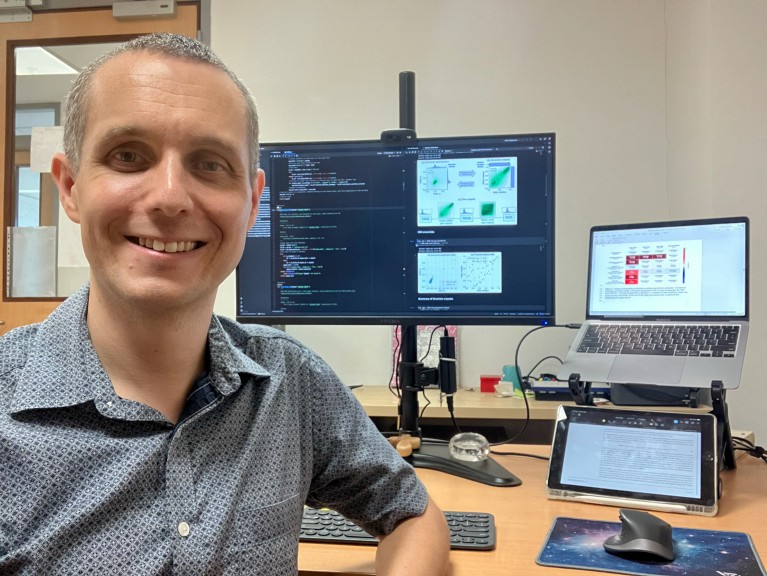
Climate scientist Benjamin Grandey has been able to have conversations about his religious faith at work thanks to an open workplace culture.Credit: Benjamin Stephen Grandey
For climate scientist Benjamin Grandey, who is based in Singapore, his Christian faith informs his science: “My theology helps me to appreciate the value of why science works, because I believe in a God who has made a very ordered Universe, and that he has given us, as human beings, the ability to understand a lot about that Universe.” For example, Grandey points out that mathematics, a human construct, is “so good at providing tools to describe physical phenomena in the world beyond our minds”.
Assumed atheism
Sociologist Christopher Scheitle surveyed more than 1,300 graduate students about their experiences and their attitudes to religion. He found that many religious people studying science struggle to be open about their faith, reporting a culture of ‘assumed atheism’ that often led them to conceal their religion for fear of being judged or discriminated against (see go.nature.com/4brey69). “I remember having several conversations with students who were very thoughtful about hiding the fact that they were religious,” says Scheitle, who is based at West Virginia University in Morgantown. One said that she purposely avoided revealing her religious beliefs until she had established herself as a scientist. “Her fear was that if people knew early in the programme, she would immediately be labelled as ‘not a serious scientist’.”
Religion and science can have a true dialogue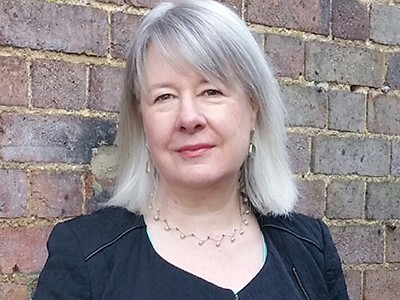
Their fears were understandable, because the culture of assumed atheism meant that other students and professors felt they could speak dismissively about religion, Scheitle says. “Among students who are more religious, it is a fairly common experience that they hear offhand negative or stereotypical comments about religion or religious people,” he adds, either in the classroom or in the laboratory or departmental offices.
As Scheitle notes in his 2023 book The Faithful Scientist, when people conceal a part of their identity, it can be isolating. “Research has found that this concealment itself often ends up being harmful to their own psychological well-being and to their sense of connection to others,” he writes.
Some graduate students that Scheitle spoke to have established their own communities, who meet for prayer and discussions on faith. Those who were open about their faith admitted having awkward interactions with their non-religious peers. “You can tell [that some co-workers] get uncomfortable, and they change the subject,” said one chemistry student. “It’s not something that’s deterred me from being who I am, but I hate the awkward interactions.”
Suzanne Kalka is open about her Pentecostal faith and has worked with organizations that promote harmony between science and religion in her role as a science educator based in Manchester, UK. One of these organizations is God and the Big Bang, which runs school workshops to encourage students to discuss the compatibility of science and faith. But in her previous career as a science teacher, Kalka says that she felt less free to discuss her religion. She taught mainly in secular schools, and, especially in her early career, felt a need to prove herself, deciding not to put her role at risk by singling herself out through her religious beliefs. “It’s tough, because you’re living two lives — you don’t want to risk your scientific credibility by being openly religious. I didn’t wear any kind of outward signs of any religious belief. I lived a very compartmentalized life. I wanted to be seen to be a very competent teacher of science.”
People of faith are allies to stall climate change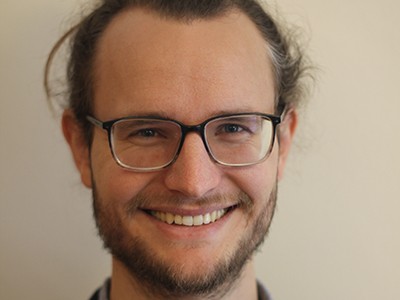
Towards the end of her teaching career, Kalka decided that she wanted to be more forthright about her faith. She took a role in a Church of England school and found that she could be more open. “But even there,” she added, “it was a minority of science teachers who had any religious belief at all, and it was never discussed.”
Kalka thinks that science teachers who are religious still find it difficult to be open about their beliefs. Her advice to them is to offer examples of famous scientists who combined a life of faith with their scientific achievements. She cites data showing that 75% of scientists who won a Nobel prize between 1901 and 2000 were of Judaeo-Christian faith (B. A. Shalev 100 Years of Nobel Prizes; 2002).
An accepting culture
Faadiel Essop says that growing up in apartheid South Africa made him think more broadly about things. In the 1990s, his country rejected its history of government-sanctioned racial segregation, and he thinks that this has led to a more sensitive, tolerant society, in which he feels able to express his Muslim faith and identity. “There’s a lot of space for you to express yourself in general in society.”
A medical physiologist at Stellenbosch University in Cape Town, South Africa, and the director of the university’s Centre for Cardio-metabolic Research in Africa, Essop says there’s a strong culture of acceptance and a willingness to make accommodations for religious practices, both at Stellenbosch and across Africa more generally. Essop travels across the continent regularly for scientific meetings and says that he’s seen both Muslims and Christians being “quite comfortable to express their religion”.
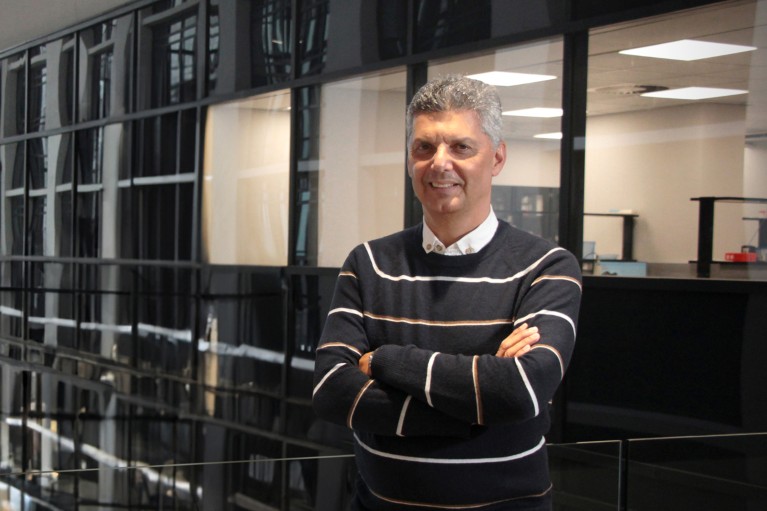
Faadiel Essop says there’s a culture of openness in discussions of faith in South Africa.Credit: Wilma Stassen
Closer to home, his university colleagues are sure to provide him with halal foods (those permitted by Islamic law) at meetings or events, and the teaching schedule leaves gaps on Fridays for congregational prayers. This year, the head of his department came to speak to him before the Muslim holy month of Ramadan to discuss the daily fasts that he would be undertaking. “There is that empathy. It’s not necessary, but it’s nice. It shows that he’s got an interest, and I can explain what I do.”
An open workplace culture has also helped Grandey to be comfortable discussing his faith at work. The climate physicist moved to Singapore after growing up and completing his studies in the United Kingdom. He has found that office environments that are culturally diverse, in which people are open to discussing their personal lives, leave room for conversations about faith, too.
“In my last workplace, the Singapore–MIT Alliance for Research and Technology, it was very international, very diverse. I remember enjoying many stimulating conversations with colleagues from other Asian countries who had not had much exposure to Christianity. They were very open to learning about what I believed as a Christian, and sharing about their own beliefs, too,” says Grandey, who is now a research fellow at Nanyang Technological University.
Risks of ruling out religion
Essop sees the often-strict divide between science and religion, especially in places where he’s lived and worked in the United Kingdom and the United States, as a barrier to the free exploration of ideas. Discussing evolution and the origins of life, for example, in such environments could lead to stilted conversation.
“That’s where religion has been sidelined in a way, because the two, work and religion, are viewed as separate domains. Personally, I think they’re an integrated whole.”
From her studies, Ecklund thinks that accepting the existence of religion in a scientific context can help to encourage diversity. “Our studies show that people may be kept out of science to some extent because they’re religious, either that they don’t ever go into science, because they think religious people can’t be scientists, or that they feel like they have to hide that they’re religious.”
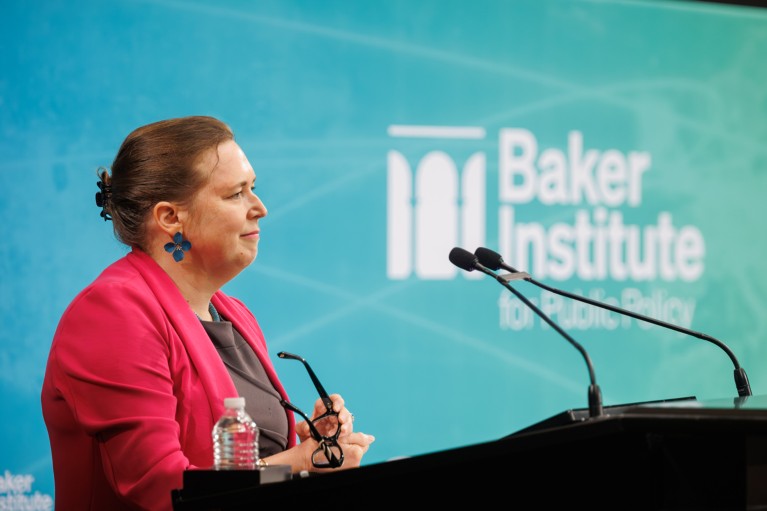
Sociologist Elaine Howard Ecklund studies scientists’ attitudes towards religion.Credit: Michael Stravato
Women and people of colour — groups that the scientific community strives to attract and retain — are more likely to identify as religious. “By raising suspicion about religious people, we, as scientists, may be inadvertently keeping racial and ethnic minorities and women out of science,” she says.
Essop has devised a graduate teaching module on the philosophy of science and “influences that can shape science”. He encourages other educators and researchers to fold spiritual and philosophical elements into academic discussions, because he thinks an approach to science that considers other belief systems will nurture more-inclusive attitudes in his students.
“We’ve got to look at more-holistic training,” he says, and at other systems – such as Indigenous knowledge, which has inspired “an awakening” of interest around the world. “We’re looking at science a bit differently — that it’s not just an absolute thing, but instead we consider many facets.”

 Why I launched Malaysia’s first scientific newspaper
Why I launched Malaysia’s first scientific newspaper
 Serving science and the Church as the Pope’s astronomer
Serving science and the Church as the Pope’s astronomer
 Religion and science can have a true dialogue
Religion and science can have a true dialogue
 People of faith are allies to stall climate change
People of faith are allies to stall climate change







